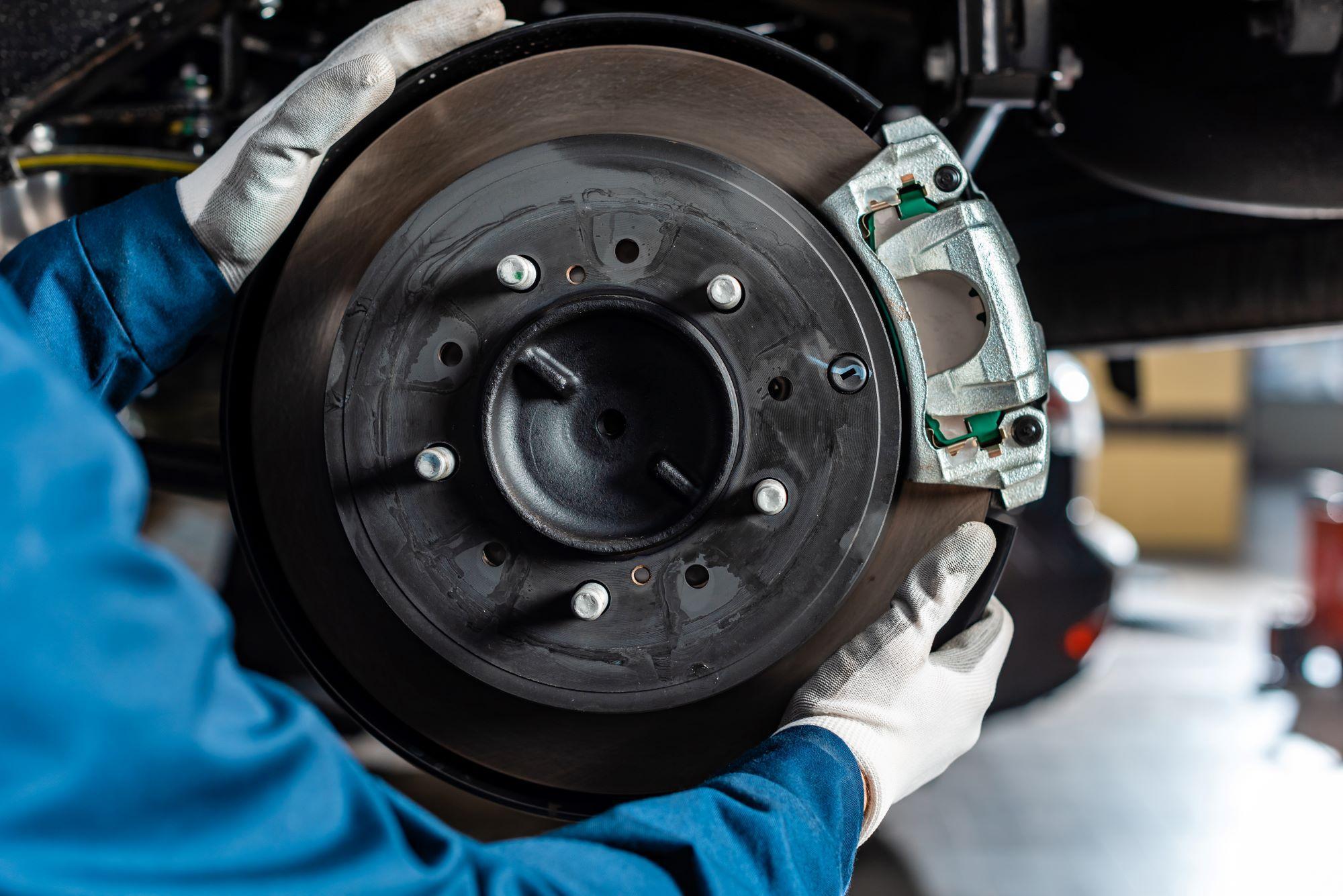If you’ve been a driver for a while, you’ve heard the golden rule of car maintenance: change your oil every 5,000 kilometres. It’s a phrase as old as the highway itself, a piece of advice passed down from generation to generation of car owners. You’ve probably seen it on the little stickers mechanics put on your windshield, a constant reminder of a seemingly non-negotiable deadline.
But what if that rule is completely outdated?
In many cases, it is. The truth is, modern vehicle technology has changed everything we thought we knew about oil changes. While the 5,000-kilometre interval was a necessary and important guideline for the cars of the past, blindly following it today can mean you’re wasting money and time.
So, how often should you really be changing your oil? That’s what we’re here to answer. We’ll demystify the science behind modern motor oil, explain the factors that truly matter, and provide a new, more accurate guide to keeping your engine healthy. We’ll also cover why your oil change is about much more than just oil and why trusting a professional is the best way to get the right service for your vehicle.
The Legacy of the 5,000-Kilometre Rule
The 5,000-kilometre oil change rule didn’t appear out of thin air. It was a well-founded practice for the cars of the 1970s and 80s. Back then, engine designs were simpler, and conventional motor oil was made from a less-refined base. It degraded faster under the heat and friction of an engine, breaking down and becoming less effective at lubrication. Frequent oil changes were the only way to prevent the formation of engine-damaging sludge and keep the car running.
Fast-forward to today, and the automotive landscape has completely changed. Engines are built with tighter tolerances, more advanced filtration systems, and operate at higher efficiencies. Just as importantly, the oil itself is a completely different product. The old rule, while once an excellent piece of advice, is now a legacy of a bygone era, like a road map that’s missing half the highways.
The Science Behind Modern Motor Oil
The most significant development that’s changed the oil change game is the introduction of synthetic and synthetic-blend motor oils. While conventional oil is refined from crude oil, synthetic oils are engineered in a lab.
This matters because synthetic oil has a much more uniform molecular structure, which gives it superior performance. It’s more resistant to heat, doesn’t break down as quickly, and can flow better in extreme temperatures—a critical feature for Canadian drivers who deal with harsh winters and blistering summers. The result is an oil that lasts significantly longer and provides better protection for your engine.
While a conventional oil change might still be recommended every 5,000-8,000 kilometres, a full synthetic oil can often last for 12,000 kilometres or even longer. For an authoritative guide on vehicle maintenance, you can always check out the advice from the Canadian Automobile Association (CAA). They provide excellent resources that help drivers understand the ins and outs of modern car care, including which oil to choose for your vehicle.
The first step in knowing how often to change your oil is to look at your owner’s manual. It will provide the manufacturer’s recommended interval, and for many newer cars, it will even tell you if your car has an Intelligent Oil-Life Monitoring system. This clever technology tracks your driving habits to calculate exactly when your oil needs to be changed, taking all the guesswork out of the process.
Real Factors That Determine Your Oil Change Schedule
So, if the 5,000-kilometre rule is a myth, what are the actual factors that you should be considering? It’s not a single number but a combination of variables.
Your Vehicle’s Make and Model
As mentioned, your manufacturer’s recommendation is the definitive source of truth. It’s a scientifically backed recommendation based on thousands of hours of engine testing. Ignoring it can lead to premature engine wear and could even void your warranty.
Your Driving Habits
The way you drive has a huge impact on your engine’s health. You may be surprised to learn that city driving—with its constant stop-and-go traffic and frequent idling—is considered severe driving. Short trips that don’t allow the engine to fully warm up are also tough on your oil because they don’t burn off moisture and other contaminants. We can help you identify your driving habits, create a personalized plan to extend your vehicle’s lifespan, improve your fuel efficiency and save money on gas.
The Climate
If you live in Ontario, you know that our weather can be extreme. Engine oil must be able to perform in both freezing cold and sweltering heat. The cold can make oil thicker and less effective at lubrication during startup, while intense heat can cause it to break down faster. Fortunately, full synthetic oils are specifically designed to perform in these conditions, providing better protection year-round.
What Happens If You Skip an Oil Change?
Ignoring your vehicle’s recommended oil change schedule is a risky game. It’s the simplest and most effective maintenance you can do, and failing to do it can lead to expensive and irreversible damage. Over time, old oil becomes thick and sludgy, losing its ability to lubricate.
The consequences of this are severe:
- Increased Engine Wear: Old oil causes more friction between moving parts, leading to premature wear and tear.
- Reduced Fuel Economy: A dirty, sludge-filled engine has to work harder, which means it burns more fuel to do the same amount of work.
- Engine Overheating: Oil also helps to cool the engine. If it’s dirty and not flowing correctly, the engine can overheat.
- Catastrophic Engine Failure: In the worst-case scenario, the engine can seize up completely, leading to a repair bill that is often more expensive than replacing the car itself.
An oil change is a small, proactive step that can help you avoid major, unexpected repairs down the road. It’s part of a holistic approach to keeping your vehicle in top condition, just like performing some overlooked end-of-summer car maintenance to ensure a smooth transition into the colder months.
The Oil Change is More Than Just Oil
When you take your car to a professional auto repair in Kitchener or anywhere else, you’re getting more than just new oil. A proper oil change service includes a multi-point inspection that a skilled mechanic in Kitchener will perform.
During this service, they’ll check your:
- Tires: They’ll inspect your tire pressure, tread wear, and look for any signs of damage.
- Fluids: They’ll check the levels of other crucial fluids, including coolant, transmission fluid, and power steering fluid.
- Brakes: A quick visual check of your brakes can identify if your pads or rotors are wearing thin and need to be replaced.
- Belts and Hoses: A cracked belt or a soft hose can lead to a major breakdown. Your technician will inspect these to ensure they are in good condition.
This comprehensive approach is how a good mechanic in Cambridge catches small issues before they become major problems, saving you money and hassle in the long run.
Your Trusted Partner for Oil Changes and Beyond
Now that you know the truth about oil changes, you also know that having a trusted professional on your side is more important than ever. We’re proud to serve communities across Ontario, providing honest, expert service you can rely on. Our skilled team of mechanics can help you with everything from a routine oil change to more extensive work, including auto repair in Cambridge. We’re here for you.
The New Rule of Thumb for Your Oil
The 5,000-kilometre oil change rule is a relic of the past, but the need for regular vehicle maintenance is more critical than ever. By understanding the factors that truly matter, you can ensure your car gets the care it needs to run safely and efficiently for years to come.
Instead of guessing, rely on the expert advice of a trusted mechanic who can look at your vehicle’s specific needs and driving habits. It’s the single best way to protect your car’s engine and your wallet. If you’re ever in doubt, our team is always here to help you get the right oil change service for your vehicle.





